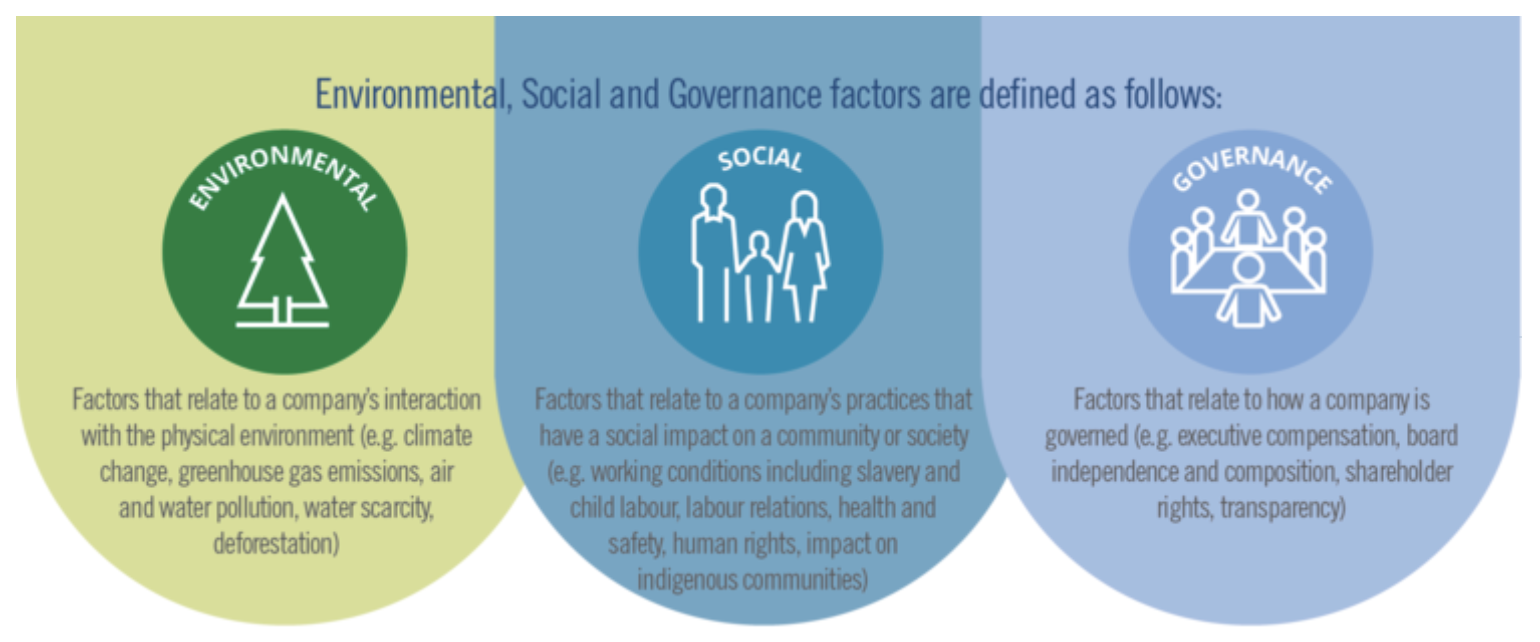Are you confused about what Environmental, Social & Governance (ESG) investing and socially responsible investments (SRI) really mean? We don’t blame you! Definitions can vary wildly — and many funds are less “responsible” than the name might suggest.
Against a breadth of global problems, such as climate change, inequality, and poverty, today’s investors are looking for funds that deliver more than just financial returns. Unfortunately, choosing the best socially responsible investment can be complicated.
Your vision might be an investment that creates a cleaner, greener, and better future for everyone. But is this really what you get when you invest in an SRI or ESG fund?
In this article, we will explain the most common socially responsible investment definitions and dive into what ESG investing actually is. Let’s take a look.
What are SRI funds?
The definition of SRI funds is not always the same and varies depending on who you ask. Most definitions you’ll find online are specific and often very different from each other.
For instance, Investopedia defines socially responsible investing as something that’s considered “socially responsible due to the nature of the business the company conducts.” But in practice, many socially responsible investment advisors simply exclude the very worst offenders — like weapons manufacturers or tobacco companies. Are these acceptable socially responsible investment criteria if such funds often still include companies such as Nestlé, Total SA and Newcrest Mining?
Generally speaking, we could say that socially responsible investment products should not harm the environment or society. But this is a very wide definition and begs the question: “What does it mean to be socially responsible?”
This is where ESG comes in (in part!). But what does ESG stand for? We’ll get to this in the following section.
What is ESG investing?
ESG stands for ‘Environmental, Social and Governance’ and is a common term used when assessing the sustainability of a company. ESG rankings are based on data regarding many factors, including, for instance, a company’s carbon emissions, labour rights, gender equality, management practices, and more.

Source: World Economic Forum
ESG — Environmental, Social & Governance — What does that mean?
The E in ESG stands for “environmental” and means the effective use of available resources. Ecological efficiency and emissions are also taken into account as important factors. Climate protection is currently one of the most important issues. In 2019, the World Economic Forum in Davos identified climate risks as three of the five largest environmental risks.
The S in ESG stands for “social” and refers to socially responsible practices such as banning child labour, defending workers’ rights and prohibiting discrimination as an ESG criterion. These subject areas have also been defined as core topics and principles by the UN Global Compact. The UN and various companies launched this network in 1999. By doing so, the companies have committed themselves to adhering to ten major principles.
The G in ESG stands for “governance”. The main topic here is corporate management and everything that comes with it. For example, this can mean the diversity of the management board members, the composition of the council, skills, and experiences. This ESG factor is also committed to preventing corruption, fraud and bribery.
So far so good. But this approach has some disadvantages that should be mentioned.
Heavy focus on operational business
ESG data focus exclusively on the company’s operational business (footprint). The impact of a company’s product or service after it has left the company (handprint) is not taken into account.
So, what does ESG investing mean in practice? It means that the bigger picture is often not captured. This can lead to some questionable companies being included in funds based on ESG criteria.
For example, Alibaba is part of the sustainability fund of a large Swiss bank. Yes, you read that right: the Chinese e-commerce giant, which sells fast fashion for less than USD 2 apiece, is deemed a sustainability hero (at least according to that bank’s criteria).
So, you see: a company like Alibaba can be “operationally excellent” according to ESG rankings, because they don’t take into account the ecological and social impact of the products themselves, which, therefore, makes the term misleading. For this reason, we believe that ESG should be only a small part of a robust review used to determine whether a company is viewed as socially responsible and thus meets the criteria for sustainable investing.
Not covering the two other ESG factors “social” and “governance” sufficiently
In ESG ratings, the environmental factor weighs much more than the social and governance factors. If you look at ESG scores, you will see that the environmental component contributes the most to rating performance. As a result, some companies are rated higher than they would actually deserve considering their performance in the other two areas. Ratings should reflect all three areas equally, which, practically, is not the case.
Smaller companies can’t be rated due to costs
Rating agencies determine how investment advisors perceive companies’ ESG criteria. Small companies are disadvantaged, because they cannot meet the ESG requirements for financial reasons. For example, companies have to regularly publish information about their sustainability. Smaller companies often do not have the necessary resources to do this. Hence, they can’t be considered by rating agencies.

Alibaba is included in a sustainability fund of a major Swiss bank.
Are ESG and SRI investments a bad thing?
Not at all — ESG and SRI are useful, and the evaluation has to start somewhere. This is why ESG rankings and exclusion criteria are a great place to begin. But as the Alibaba example above shows, they only address part of a company’s impact on the environment and society. Therefore, they also should only be part of the factors considered if you’re looking for socially responsible investing companies. To speak of real socially responsible investment is to understand that the focus needs to be on the impact of a product as well. This means considering whether a company’s product has a positive or negative environmental and societal impact during its entire lifecycle — from the extraction of its raw materials, through processing, manufacturing, distribution, use, repair, maintenance, and disposal or recycling.
What is positive screening?
Although exclusion criteria are essential in socially responsible or sustainable investing, their proactive counterpart shouldn’t be forgotten.
Positive screening ensures that your investment makes the world a better place — for instance, through the products or services it creates. At Inyova, we assess companies in depth according to impact areas such as renewable energy, electromobility, medical technology, and many more. We then give you socially responsible investing examples that are tailored precisely to the topics you care about (you will see every company that we recommend you invest in). It’s up to you, the customer, to decide which of these matter to you and which of them you want to invest in.
Positive and negative screening in combination makes it possible to invest responsibly. But there are additional factors we keep in mind when creating impact investment strategies for our customers — we’ll explain this in the last section of this article.
What is a green fund?
The name implies that green funds are socially responsible funds by definition. But that’s assuming they only invest in companies that are eco-friendly or do not impact the environment in a negative way. As with SRI, definitions vary greatly, meaning there is a risk that they are interpreted more loosely…
Some consider “no negative impact” enough to deem a fund “green”. Other green funds invest proactively in companies that are engaged in environmentally supportive activities, like renewable energy, waste management, sustainable products, and so on.
The most significant downsides of green funds (and any other fund, for that matter) are a lack of transparency and, in many cases, hidden fees. To win your business, many investment managers will emphasise the amazing returns to be expected.
However, they also create complex products and fee structures that tend to overwhelm and discourage you from reading the fine print too carefully before signing the contract (honestly, when was the last time you read 20 pages of a bank’s Terms and Conditions?).
The problem with this is that sometimes you can end up paying up to four times more in fees than you thought you would. This widespread problem was revealed in a Financial Times investigation earlier this year.
When you invest with Inyova, on the other hand, you are buying the stocks and bonds directly in your name. You aren’t ensnared by a complex financial product. Instead, you make a simple, direct investment — and become an actual shareholder in every company you invest in.
Best of all, we just have one, ultra-transparent fee ranging between 0.6% and 1.2%, depending on the size of your investment. There are no additional charges and no hidden costs.
How do you assess how socially responsible or sustainable a company is?
At Inyova, we firmly believe that socially responsible investing needs to go further than SRI and ESG criteria. This is why our process for choosing the right companies is more rigorous than most. Our socially responsible investment advisors are experts in the field and know exactly what to look out for.
These are the key pillars of our socially responsible investing criteria:
1. Handprint
Renewable energy, transport of the future, circular economy and disease eradication are just a few topics your sustainable investment can include. We always ask: does this company make the world a better place through the products and services it creates?
2. Footprint
We analyse the impact a company has through its operations and manufacturing. This includes how they treat their workers, the number of women they have in senior leadership positions or on the board of directors, as well as how much carbon the company emits.
3. ESG score
We look at how a company’s ESG score fits with the values that are important to you (things like pollution, tax avoidance, and human rights). You can read more about how we see through companies’ PR spin here.
It’s your investment and your choice. Our goal is to stand by you and by the values that truly matter to you.
If you want to learn more about our definition of impact investing, we have written a whitepaper and an additional guide in which we explain the process in detail.
Curious?
We hope that this article has helped you to understand sustainable investment definitions better.
Are you keen to see what socially responsible investing looks like at Inyova? Get your free impact investing strategy here — one that contains all the companies we suggest you invest in, based on your personal values. The service is completely free, and you aren’t obliged to invest with Inyova or adopt our strategy recommendations.
If you have an Inyova strategy already, log in to view it here.
If you’ve accepted your strategy, congratulations! By investing, you not only support a company’s success, but you also become part of that success — growing your savings and having a positive impact on the world at the same time.
If you have further questions about impact investing or our services, please do not hesitate to contact our friendly team. Our experienced sustainable investment advisors will be glad to help!


